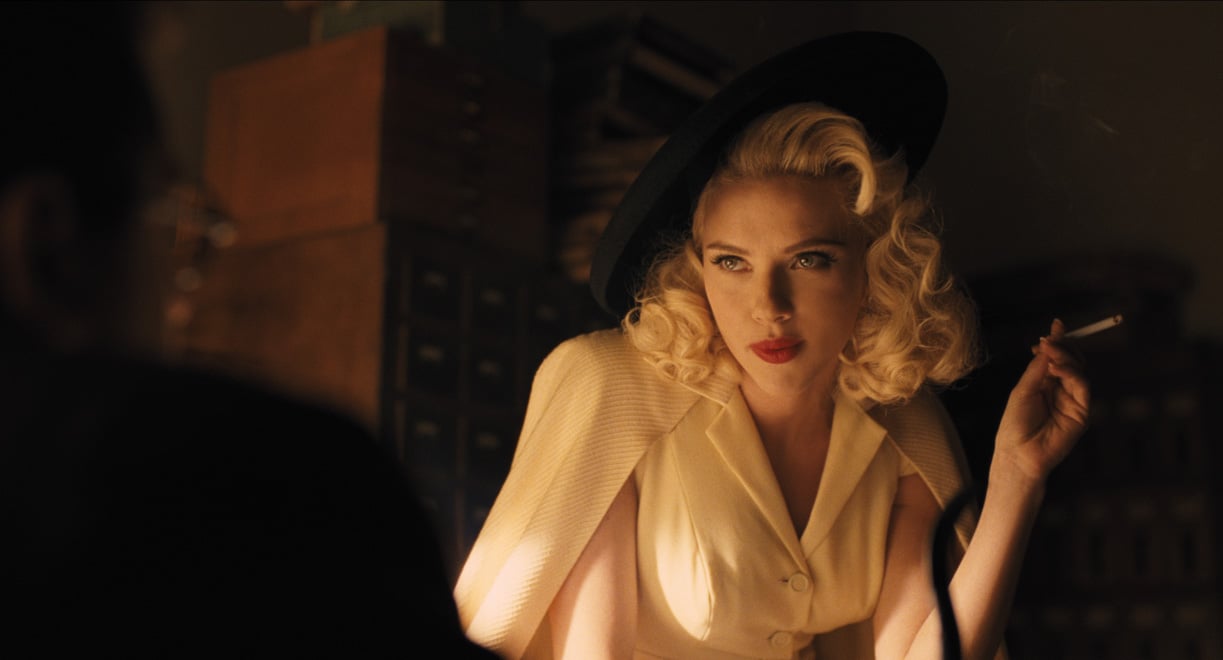Well, they’re at it again. The Coen Brothers are up to more shenanigans in “Hail, Caesar!”, their latest ripping satire. Only the madcap team of Joel and Ethan Coen (“Fargo,” “The Big Lebowski,” “No Country for Old Men”) could cook up an entertainment this broad and obvious but also this smart and self-deprecating. It’s billed as a comedy; more precisely, it’s a monstrous musical-western-noir-gangster-spy-sex-farce, with a sprinkle of screwball. This hate-love letter to American cinema sends up ’50s Hollywood, Looney-Tunes style. And it offers a simple solution to the cynics who say movies are brain-dead wastes and the naifs who think films are life made literal: “Por que no los dos?”
It’s 1951; TV, Joe McCarthy and Jesus flicks are all the rage in the U.S. of A. The Coens take us through a day in the life of fast-talking “fixer” Eddie Mannix (Josh Brolin), whose job it is to keep any scandals involving the stars of Capitol Studios from ever surfacing. But when a mysterious group called “The Future” kidnaps the pompous star (George Clooney) of one of Capitol’s blockbuster Bible epics, demanding $100,000 for his return, it’s up to Mannix to pay the ransom. Of course, the Communists get involved at some point.
The Coens use this elaborate storyline to venture into the world of Hollywood, exposing it for its slicked-up “purty”-ness. At the same time, they love the gaudy fantasia of moving pictures, so they indulge themselves by making a mashup of every genre imaginable. Recklessly hopping from plot point to plot point, “Hail, Caesar!” whirls at irregular speeds. A singing-acting cowboy hick (Alden Ehrenreich) is miscast in a neo-Lubitsch sex-com — a problem, since he don’t speak English good. The diva star of a pseudo-Busby Berkeley musical (Scarlet Johansson) can’t separate her life from her films; off the set, she’s always playing characters, whether Wilder femme fatale or Bronx gun moll. And a pair of twin gossip columnists (Tilda Swinton, channeling Rosalind Russell’s square-angled reporter in Hawks’ “His Girl Friday”) skitter at the film’s edges, threatening to expose what they think is a Communist conspiracy involving Mannix.
Whizzing back and forth between zingers (“The Tale of the Christ — now THAT was a swell tale!”), hot-potato dialogue (any scene with Quickdraw Clooney) and Monty Python hijinx, this unstable movie (amazingly) never falls apart. Why? Because the Coens’ wire-tight, screwball rhythms keep the product crisp and rollicking. It’s a killer homage to Old Hollywood pictures — mainly because it looks, moves and feels like one. (For this, we can thank Roger Deakins, the film’s cinematographer and longtime Coens collaborator.)
Whenever the stitches keeping the madness together seem to come undone, it’s always with a purpose. The helter-skelter humor lunges back and forth between light lulls (a diet-Minnelli tap-dancing sequence, a bizarre Jonah Hill cameo) and manic chuckles without warning. In one scene typical of the Coens’ only-funny-to-me humor, we spend 10 minutes on an inconsequential scene of the snooty director (Ralph Fiennes) trying to teach the hick proper English. The humor isn’t terribly profound, but this scene’s sense of termite-taffy extension — stubbornly staying with one situation, stretching the silliness as far as it can go — is a classic example of the Coens’ “shotgun” approach to comedy: messy, off-center and always more accurate than precise.
Its target is satiric decimation, and they’re determined to hit it by any means necessary. They’ll turn on the laughing gas randomly and without warning — for instance, when a plump maid vacuums the Communists’ shag carpet, or when a movie editor (a memorable, zippy Frances McDormand) gets her tie caught in the playback machine, nearly choking to death — to give their product extra punch. These moments give the film a rough, disheveled feel that recalls the bawdiness of Preston Sturges’ ’40s insanities (“Sullivan’s Travels,” “The Palm Beach Story”). And it’s damned terrific.
“Hail, Caesar!” beautifully reflects the B-movie-sensibilities of the studio execs that the Coens both mock and celebrate. It’s easy-to-understand wit is bolstered by the hellzapoppin’, crazy means by which the story unfolds. Though it may seem simplistic and broad in its message, it’s complex and nuanced in its delivery. The Coens grandly take the piss out of Hollywood (and, by extension, the movie itself), having loads of absurdist fun along the way.
Contact Carlos Valladares at cvall96 ‘at’ stanford.edu.
